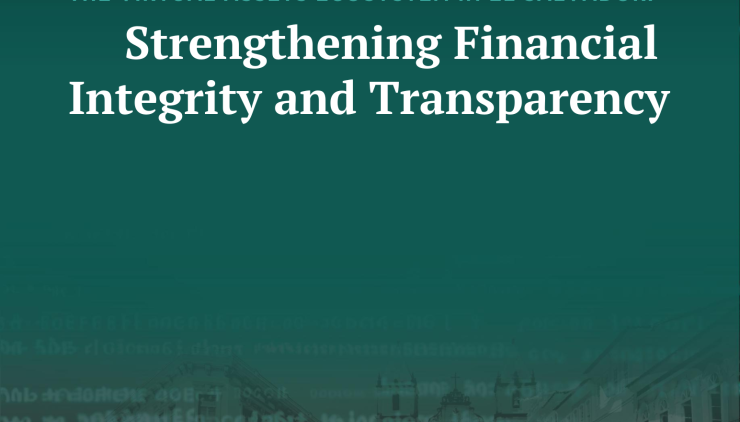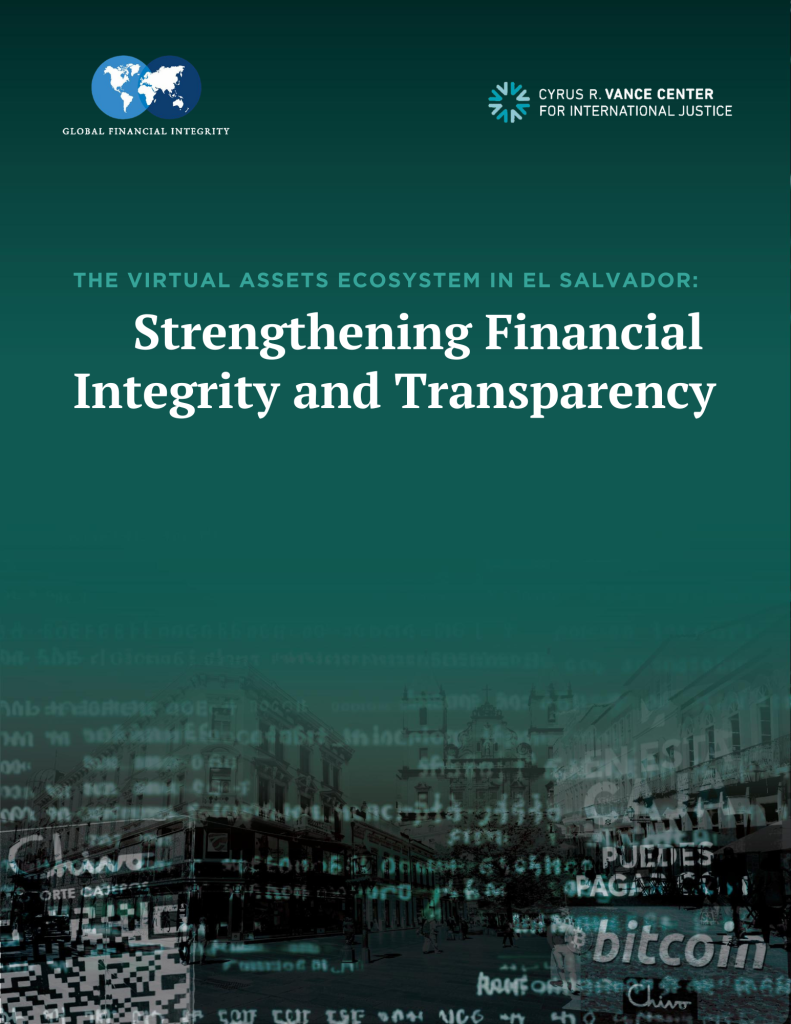Vance Center Co-Authors Report Analyzing El Salvador’s Virtual Assets Ecosystem
October 2023A new joint publication by the Vance Center and Global Financial Integrity (GFI), published on October 18, analyzes the legal framework for virtual assets in El Salvador, assesses financial crime risks, and offers policy recommendations.

In 2021, El Salvador became the first country in the world to adopt Bitcoin as legal tender. Two years later, the country has undergone significant technological change and growth, faced operational and regulatory challenges, and learned a tremendous amount in the process – but to date, there are few independent assessments examining these developments, lessons learned and next steps.
To address this information gap, the Vance Center and GFI on October 18 released the report “The Virtual Assets Ecosystem in El Salvador: Strengthening Financial Integrity and Transparency,” available in English and Spanish. The executive summary is also available in both English and Spanish.
This joint initiative between the Vance Center and GFI, a Washington, D.C.-based think tank that produces analyses of illicit financial flows, advises governments on effective policy solutions and promotes transparency in financial systems, aims to support El Salvador and other Latin American countries in harnessing the benefits of technological and financial innovation while mitigating potential criminal and financial risks.
The report delves into the country’s virtual assets ecosystem, analyzing it from both legal-regulatory and anti-money laundering (AML) standpoints, as well as from a counter-terrorism financing (CFT) perspective. Key findings include:
> An expanding legal and regulatory framework, and related gaps and challenges. El Salvador has created a regulatory framework for this ecosystem with legislation including the Bitcoin Law, the Digital Assets Issuance Law, and the Innovation and Technology Manufacturing Promotion Law. This set of regulations seeks to promote technological innovation in the country. However, the report notes that it will be essential for policymakers to introduce regular updates to ensure the framework remains relevant, and to establish clearer rules on cybersecurity, consumer protection, and data privacy.
> Need for greater institutional reinforcement. Although the Salvadoran government has taken steps toward systematizing providers in this space through efforts like the Registry of Virtual Asset Providers and the Bitcoin Service Providers Registry, the impact of these entities remains curtailed by limited resources, weak cross-institutional cooperation, and implementation challenges.
> Transparency concerns. There has often been insufficient transparency around state actions, such as the implementation of a Bitcoin Trust and official Bitcoin purchases. Key financial details about the purchase of Bitcoins, amounts paid in commissions, and the total amount of Bitcoins made by the government of El Salvador, are unavailable to analysts or the public. The information that has been made public often emerges from sporadic updates directly from Salvadoran President Nayib Bukele, rather than a designated government agency or entity, and some key information remains inaccessible.
> Strategies to combat financial crimes in this sector. The report identifies ongoing and emerging vulnerabilities related to the use of virtual assets, from corporate service providers’ roles in domestic investments and real estate to election campaign financing. One significant concern, according to the analysis, surrounds the account requirements for Chivo Wallet, the official electronic wallet created by the Salvadoran government to make payments in dollars or Bitcoin. The report finds that the existing requirements are lenient enough that shell companies are able to engage in undisclosed activities, and recommends that state regulators adopt additional requirements to ensure greater oversight and close some of the loopholes that enable illicit activities.
The report offers a set of actionable recommendations to address these issues, including bolstered data protection legislation, enhanced AML/CFT measures ahead of an upcoming evaluation of El Salvador’s measures to combat money laundering and financing of terrorism (known as a FATF mutual evaluation), and stricter protocols for platforms like Chivo Wallet. It also emphasizes the need for law firms, legal advisors and financial analysts to engage in due diligence to identify, address, and prevent criminal misuse of El Salvador’s financial system.
The Vance Center thanks the pro bono firms involved in researching legislation, regulation, and best practices, including Orrick.


